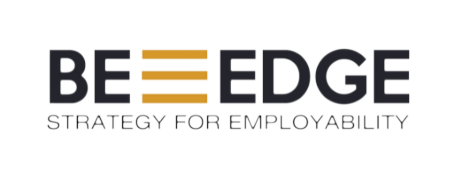
You are a Foreigner: How to Convert it Into Your Competitive Advantage in the U.S. Market
I will start out with a story of someone very close to me and to whom I look up to. My cousin is from Pakistan, which is a country of many challenges. However, when he arrived here in the United States, he was determined to make it despite the odds.
He started by enrolling in English language classes so that he could learn the language and better understand the culture here. Soon, he found local businesses and individuals who needed help with translation services. This gave him much-needed money as well as an invaluable experience. Once he had enough experience with translation services, he decided to try his luck in the tech industry. After attending various networking events and conferences, he was able to secure a few freelance web development projects. This gave him the opportunity to showcase his skills to other employers, and eventually, he secured a position in the tech industry. Today, he is a senior software engineer at an established company and is constantly traveling all over the world. His success story is an example of how immigrants can make use of their skills and resources to overcome many of the challenges in a new country.
Being a foreigner in the U.S. market can be a great advantage. You bring a unique perspective and diverse skills and experiences that can help you stand out in the crowded U.S. market. Here are a few tips on how to leverage your foreignness to your advantage:
Start by becoming an expert in the U.S. marketplace.
- Examine the trends: Become well-versed in economic indicators, such as interest rate changes and Gross Domestic Product (GDP) growth figures, to anticipate trends that will impact the U.S. market. Understand regional differences between markets within the country, too; for example, Silicon Valley does not behave like manufacturing centers in Ohio or Montana’s ranching industry operations
- Get Experience: Start with a position at an established company or organization where you can learn from experienced professionals and gain hands-on experience with different aspects of US market investing, including research analysis work on stocks/bonds/ETFs, etc., executing trade executions inside brokerage systems, understanding tax implications involved when trading equities and commodities, etc. You can use internship programs available during the summer to get real-world experience working alongside professionals who manage money daily; these internships offer valuable insights into how professional portfolio managers think about investments.
- Earn Education Credentials: Consider taking advanced courses related to finance, like accounting and microeconomics, and supplemental classes pertaining directly to the securities markets, which help build up your familiarity with all asset types traded across US exchanges. You may also pursue designations like Certificates of Financial Planning (CFP), Chartered Investment Counselor (CIC), and Certified Fund Specialist (CFSp by AIFA). These formal credentials demonstrate expertise obtained through additional education, as many employers seek candidates who have completed various exams.
- Make Professional Network Connections: After completing your educational requirements, expand your knowledge base. Register for events regarding the latest advanced strategies used by global asset managers. Discuss. Attend webinars hosted by leading regulatory bodies and read white papers. Seminars are hosted by online portal sites such as Bloomberg, CNBC, and MIT Media Lab research firms. These would provide timely information on what’s happening with global “thoughts” and “tactical movements” and help sharpen analytical skills.
Become an expert in your culture.
- Use your cultural background to differentiate yourself from others. Being able to bring unique insights and experiences to the table can be a powerful advantage.
- Connect with like-minded people: Look for individuals, organizations, and entrepreneurs who share your cultural background and connect with them to learn from their experiences about how to navigate the U.S. marketplace. This can provide valuable insight into new business opportunities or resources available in specific markets or industries that may be unique.
- Many American consumers are drawn to products and services rooted in international traditions, so use this as an opportunity to introduce customers and audiences that are unfamiliar with certain aspects while simultaneously marketing the benefits of your services or goods on a global scale.
Additionally, apply for special visas related to foreign entrepreneurs and investors that provide access to capital investment opportunities (e.g., E-2 Treaty Investor Visa), preferential tax treatments, startup assistance programs tailored towards international businesses relocating to more specific areas of the country (i.e., California’s International Entrepreneur Rule), etcetera. Visa requirements are subject to change, so be sure to research them thoroughly before applying!
Finally, consider utilizing an interpreter service when communicating with people who do not share the same fluency level, which will make conversations flow much smoother during negotiations or sales situations. The truth is that, regardless of your background, hard work and commitment can go a long way toward achieving your goals. Setting yourself up with the necessary resources, knowledge, and support can be the difference between success and failure. If you invest time and effort into researching the industry and its regulations, you have a better chance of succeeding in the U.S. market. Getting an understanding of the legal requirements, financing options, and marketing strategies available can help point you in the right direction to success. With the right mindset and the right tools, anyone can achieve what they set out to accomplish in the United States.


